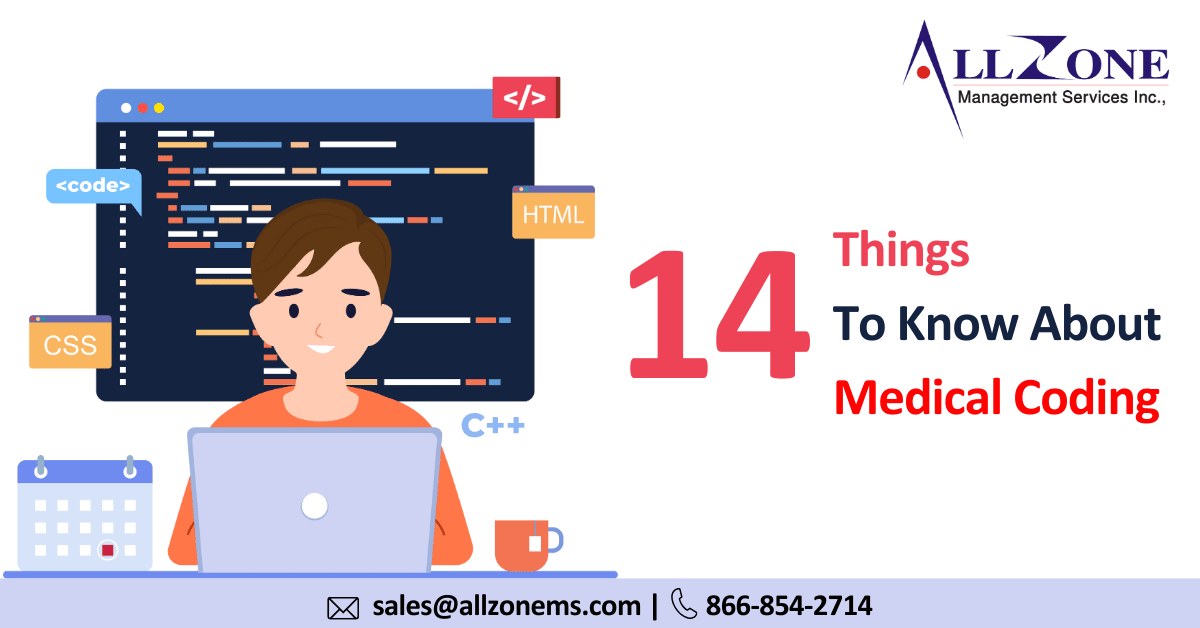In this blog, you should know why healthcare providers need to be aware of the medical coding guide.
1. What is Medical Coding?
Medical coding is the process of translating medical diagnoses, procedures, and services into universal alphanumeric codes for proper documentation and billing purposes.
2. Importance of Accuracy:
Accurate medical coding is crucial for healthcare providers to receive proper reimbursement, maintain compliance with regulatory requirements, and ensure patient records are complete and precise.
3. HIPAA Compliance:
Medical coders must adhere to strict guidelines outlined in the Health Insurance Portability and Accountability Act (HIPAA) to maintain patient confidentiality and data security.
4. ICD-10-CM and CPT Codes:
The two primary code sets used in medical coding are the International Classification of Diseases, 10th Revision, Clinical Modification (ICD-10-CM) for diagnoses and the Current Procedural Terminology (CPT) for procedures and services.
5. ICD-10-CM Updates:
ICD-10-CM codes are updated annually to reflect changes in medical terminology, technology, and practices. Medical coders must stay current with these updates to ensure accurate coding.
6. CPT Code Changes:
CPT codes are also revised annually by the American Medical Association (AMA) to reflect new procedures and services. Medical coders need to be aware of these changes to accurately code for services rendered.
7. Modifiers:
Modifiers are additional codes used to provide more specific information about a service or procedure. They may indicate multiple procedures performed, anatomical location, or other pertinent details.
8. Coding Guidelines:
Each code set comes with its own set of coding guidelines established by governing bodies like the Centers for Medicare & Medicaid Services (CMS) and the American Hospital Association (AHA). These guidelines must be followed closely for accurate coding.
9. Specialty-Specific Coding:
Different medical specialties have their own unique coding requirements and nuances. Specialized coding certifications may be required for certain specialties such as cardiology, orthopedics, or oncology.
10. Electronic Health Records (EHR):
Many healthcare facilities use electronic health record systems to streamline the coding process and improve accuracy. Medical coders must be proficient in navigating these systems and understanding EHR workflows.
11. Medical Necessity:
Proper documentation of medical necessity is essential for coding and billing purposes. Medical coders must ensure that the services billed are supported by appropriate clinical documentation.
12. Reimbursement Systems:
Understanding various reimbursement systems, such as fee-for-service, bundled payments, and value-based care, is essential for medical coders to accurately assign codes and ensure proper reimbursement.
13. Audits and Compliance:
Regular audits are conducted to ensure coding accuracy and compliance with regulations. Medical coders must be prepared to participate in these audits and address any discrepancies found.
14. Continuous Learning:
The field of medical coding is constantly evolving, with new regulations, technologies, and coding guidelines emerging regularly. Medical coders must commit to ongoing education and professional development to stay abreast of these changes.
By understanding these essential aspects of medical coding, including the medical coding guide, healthcare providers can ensure accurate documentation, proper reimbursement, and compliance with regulatory requirements
How Our Medical Coding Company Can Help Solve Your Coding Errors:
- Error Identification and Correction: They can review your coding practices and identify errors in your coding process. They can then correct these errors and ensure your codes are accurate and compliant with regulations.
- Improved Coding Practices: They can implement best practices for medical coding to minimize future errors. This includes using the latest code sets (ICD-10-CM and CPT), adhering to coding guidelines, and ensuring clear documentation from providers.
- Auditor Review and Appeals: If you’ve faced claim denials due to coding errors, a medical coding company can help you navigate the appeals process. They can review the denials and prepare strong appeals based on accurate coding practices.
- Ongoing Education and Support: They can provide ongoing education and support to your staff on proper coding practices and updates to coding systems. This helps maintain accuracy and compliance over time.

